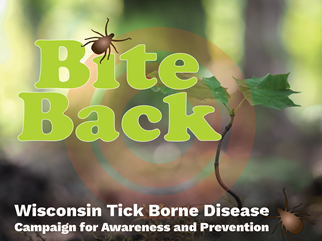FOR IMMEDIATE RELEASE:
March 3, 2020
Contact: Senator Robert Cowles: (608) 266-0484
Third Bill from the ‘Bite Back’ Package Signed into Law
MADISON– Senator Robert Cowles (R-Green Bay) released the following statement after 2019 Senate Bill 298 was signed into law as 2019 Wisconsin Act 158. This bill is the third from the ‘Bite Back’ package to combat Lyme disease in Wisconsin that became law this session. The package was authored by Senators Cowles and Mark Miller (D-Monona), and Representatives Jeff Mursau (R-Crivitz) and Nick Milroy (D-South Range):
“The problem of Lyme disease is growing and shows no signs of slowing as the number of cases annually has doubled in the past decade. Preventing Lyme disease is not about making people cautious to spend time in Wisconsin’s great outdoors, but instead it’s about educating people on the simple steps to prevent tick bites, reminding people to search the body for ticks after time outside, and raising the awareness of the warning signs of Lyme disease to catch more cases early and allow for the better management and treatment of the disease.”
2019 Wisconsin Act 158 requires that information is published in State Park brochures to raise awareness of Lyme disease, inform on how to prevent tick bites, and encourage people to check for ticks after spending time outdoors. This legislation also requires that similar information is posted on the Department of Natural Resources’ digital and print platforms in May of each year, which is Lyme Disease Awareness Month.

“I’ve personally seen the impact that Lyme disease can have on someone’s life. By approaching the awareness and prevention of Lyme disease through the ‘Bite Back’ package, we can ensure that the Legislature has made the first step and will foster continuing discussions to combat Lyme disease and other vector-borne illnesses in our state. I’m proud to see a third bill from this package signed into law, and I hope in the years ahead that we will see the impact of increased awareness and prevention among Wisconsin residents.”
###
